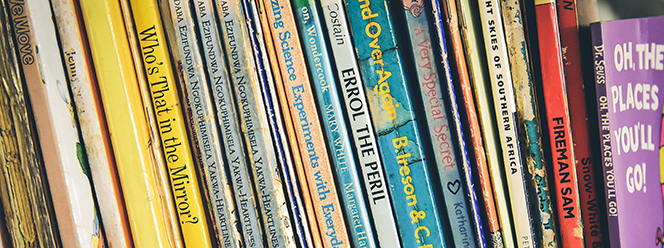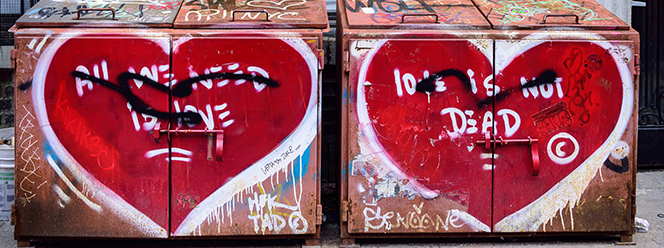
by Tara Joyce | Sep 29, 2016 | Self/Business Growth

It all depends on how long you keep telling yourself the story that is feeding your anger. Your emotional reaction, your anger, it is a result of your conditioning. By nature, it only lasts a few moments. But if you feed the reaction, through your thoughts, it keeps going. And growing.
What was once an momentary emotion grows into something bigger. A story begins to build. An emotion can become a mood. The mood becomes a temperament. The temperament transforms your personality. Your day/year/life is now “ruined” not because of X occurrence, but because of what you are still telling yourself about X.
It’s the story that’s hurting you.
Oh yes, the emotion may be painful, but if you can experience it fully, in the moment as children do allowing it to pass without a story and without attachment, you can have your experience and be over it in a matter of moments. You can be over it not because you got what you wanted and not because it wasn’t painful, but because you know how to experience your emotions and discipline your thoughts. You know their importance and their place in your life.
While not a simple thing, not needing to create a story to spur your emotions on leaves you free to fully feel them and to thoughtfully express them. Finding yourself unattached to your emotional reactions and the stories they may arise, you allow them to pass, rightfully returning to your default state: happiness. Authentic happiness, which likely isn’t the storybook kind.
photo credit: Robyn Budlender

by Tara Joyce | May 19, 2016 | Self/Business Growth

Emotional littering is when I attempt to alleviate my own overwhelming emotions by disposing of them elsewhere, when I inherently know they’re mine to be responsible to.
In those moments, I don’t want to own what I’m feeling and how I’m reacting to it. Instead, I’m trying to drop my responsibility into another’s backyard. To put it on them.
I’m not making space for my stuff, and I’m attempting to alleviate this by leaving it for someone else to take care of. I’m pretending to not be attached to what I’m feeling.
I am emotionally littering. And in doing so—in not being responsible to how I feel—I’m giving away my power to feel differently. What a waste.
photo credit: Steven Pisano

by Tara Joyce | Apr 26, 2016 | My Journey | What's On My Mind

Here’s a bit of my garbage… I have a tendency to attach to other people’s garbage.
I magnetize to the parts of people that they have decided have no value and have thrown away.
I can’t stand how their not responsible to these parts, and I determine someone needs to be.
And now their garbage has become mine. I’ve attached to it.
Except, I have my own garbage to manage. So, why do I think I have room to take on theirs? Being responsible to theirs, I can’t fully be responsible to mine.
I need the emotional space.
Other times with garbage, I like to think other people are responsible for the garbage in my life. I like to think I’m a victim of their littering and ignorance, their garbage creations.
When I’m not being responsible to the garbage in my life, when I’m blaming it on others, this action holds me back from being the complete person I am.
Taking responsibility for both the things I’ve made and the things I’ve wasted—my creations and my garbage—I change myself, and the world around me.
In owning my complete experience, I am free to be whole in my tragedy and in my joy. I can now acknowledge both my waste and my creations without shame.
In creating space for own my handiwork, both its darkness and light, I create space for others to own theirs. Magically, my garbage problem disappears.
photo credit: habeebee

by Tara Joyce | Nov 27, 2015 | Self/Business Growth

The messenger brings with them a message that is not really their own. It has been given to them, to deliver to you.
If you don’t like their message, if you don’t want to receive what they’re sharing, you may feel angry with them. You might want to shoot the messenger. But consider, is it the message you don’t like, or is it the person delivering it? There is a difference.
If it is the message you disagree with, take a moment before you shoot the messenger. Consider that your disagreement with their message is not necessarily a reflection of them, it is more a reflection of you. In seeing the messenger as the source of the problem, you aren’t seeing the difference between the message you are receiving, and the person delivering it. There is a distinction. The message is what triggers you, and the messenger is simply a deliverer of that trigger.
We are so much more than the messages we (consciously and unconsciously) share with others, and we are so much more than our emotional triggers. In recognizing yourself as both a giver and receiver of these potentially triggering messages, you share in the responsibility of knowing this emotional truth. We are all messengers, we all have value to share, and yet we can not be defined by this role and other people’s reactions to it. Our work is to be responsible for how we deliver our messages, and how we receive the other messengers in our lives. Working to know our triggers, we come to fully embrace our role as messengers, as we learn to distinguish the value of the messages — and the messengers — in our lives.
photo credit: David Seibold








